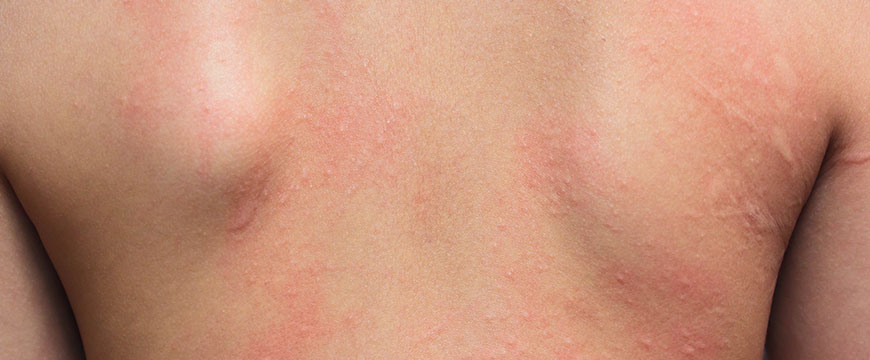
As the weather warms, the dreaded hay fever season approaches. If you have been suffering from the condition, you know there are many ways to deal with seasonal allergies. Besides visiting an allergy doctor for medication, you must wash before bed, rub Vaseline under your nose, and use an air purifier.
It may surprise you, but what you eat can significantly impact your hay fever symptoms. Certain meals can help reduce inflammation and boost your immune system, while others can aggravate itching and sneezing.
To help you fight the condition, here is food to eat to relieve hay fever symptoms and those to avoid.
Pineapple
Pineapple significantly helps with hay fever symptoms. The reason for this is that pineapple is high in vitamins and has the enzyme bromelain.
Bromelain, found in pineapple stems and juice, causes the body to produce molecules that relieve discomfort and swelling in the nose and gums.
If you have a runny nose, itchy eyes, or a cough, eating pineapple or drinking pineapple juice will help relieve the symptoms.
Berries
You should consume vitamin C-rich meals during hay fever season. Vitamin C functions as a natural antihistamine, reducing the amount of histamine your body produces in response to allergens.
When you take berries, you will notice fewer symptoms, such as sneezing and watery eyes.
Some of the best berries to take include strawberries, raspberries, blueberries, and cranberries, high in vitamin C and antioxidants that aid with inflammation.
So, the next time you feel congested, consider eating a bowl of berries.
Carrots
Carrots are high in vitamins and minerals, which assist in reducing hay fever symptoms. This root vegetable, like sweet potatoes, beets, and pumpkins, includes carotenoid, a plant pigment that boosts the immune system and lowers lung inflammation.
Those who suffer from chest tightness during allergy season may benefit from including carrots and other root vegetables in their diet.
Kale
Carrots contain quercetin and carotenoids. Both of these pigments are antihistamines and anti-inflammatory.
If you have itchy eyes and a runny nose, consider swapping lettuce for kale in your salads.
Onions
Quercetin, a pigment that works as a natural antihistamine, is abundant in white, red, and green onions. In addition to being rich in antioxidants, the quercetin found in onions soothes cells that react to allergens, reducing inflammation and enhancing immunity and gastrointestinal health.
Many sources recommend eating onions raw for the maximum benefit because frying them reduces the quercetin concentration.
Pepper
Peppers will be your closest buddy during hay fever season if you suffer from allergies. Red, yellow, and green peppers are all high in vitamin C and carotenoids, which aid in the relief of hay fever symptoms such as itching around the eyes, nose, and throat.
You can also take chili peppers as they are anti-inflammatory as well.
Garlic
Garlic, like ginger, relieves symptoms by soothing inflammation and calming the cells that create histamine.
Garlic is also high in antioxidants, and each clove contains vitamins and minerals such as magnesium, iron, C, E, and K.
Cooking with garlic during allergy season is strongly advised because vitamin E is considered one of the finest vitamins for easing symptoms.
Salmon
Fatty and oily fish, such as salmon, are high in omega-3 acids, which improve allergy tolerance and reduce inflammation and edema.
Eating salmon can help with itching and respiratory problems like asthma. Salmon is also abundant in vitamin D, increasing serotonin production when paired with omega-3 fatty acids.
This rise in serotonin can help you sleep better, which is beneficial if you have hay fever at night.
Food to avoid
As mentioned, certain foods can worsen your condition, so you should avoid it. This includes:
Dairy
Dairy, mainly matured chees like parmesan and gouda, is not ideal for allergy patients. Cheese includes histamines, which aggravate and make your allergies worse.
This is because dairy promotes mucus production in the body, which can clog the nose and throat and aggravate runny noses and itchy tongues.
Due to the dangers of milk, you should stay away from it.
Alcohol
Everyone likes a nice pint in a pub garden during the summer, however, some types of alcohol contain histamines and might aggravate your symptoms.
Stay away from Beer, cider, and wine are the worst for allergies because they contain more histamines than spirits like vodka and gin.
To prevent your allergies from getting worse, you should avoid these types of alcohol. You can also try alcohol-free drinks to prevent the condition from coming about at all.
Apples
You must have heard the adage that an apple a day keeps the doctor away, but that’s not the case regarding hay fever.
With hay fever, when you take apples, you are bound to seek the services of a doctor because the condition will worsen.
Many research studies have been conducted to investigate how apples affect hay fever, with some claiming that red apples assist in alleviating symptoms.
This is because apples can produce pollen-food or oral allergy syndrome, a condition in which your body responds to foods in trees and grass.
You have an allergy syndrome if your lips, tongue, and inside of the mouth are itching. If you don’t have this, apples should be fine to eat during allergy season; however, if you have, apples may aggravate your symptoms, and you should stay away from them.
Melon
Melon, like apples, is linked to oral allergy syndrome and can cause allergic reactions in people allergic to grass and ragweed.
Although melons are great to take in hot weather, honeydew, and cantaloupe melons can cause inflammation in the mouth and inner ears, and you should stay away from them.
Parting shot
These are some foods you should take and those you should avoid to prevent your condition from worsening. If you take any of the foods and the situation worsens, don’t sit back and think you will get better.
Instead, you should contact an experienced allergy specialist Manassas, and have them look at you.






